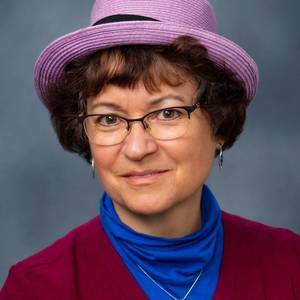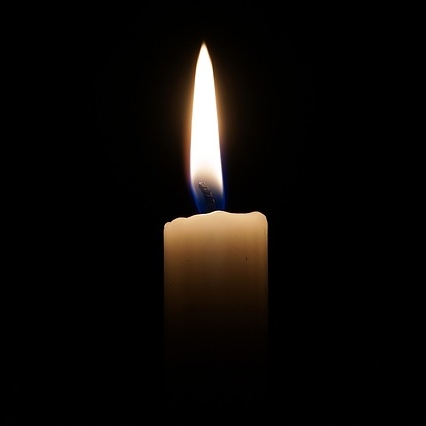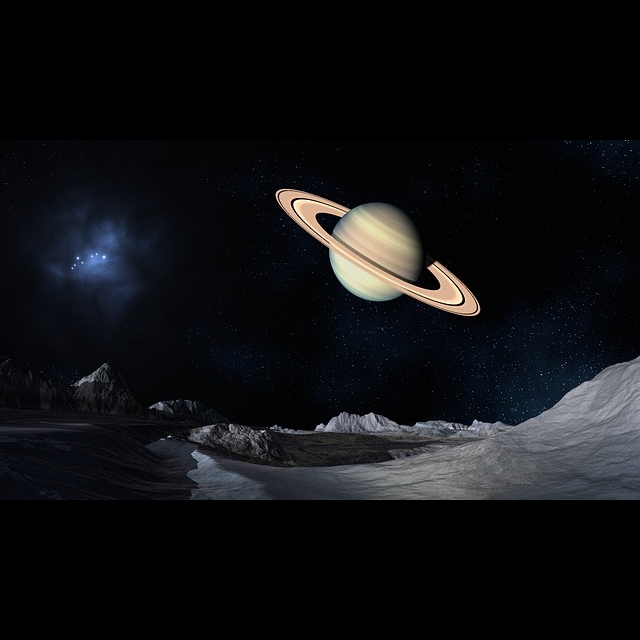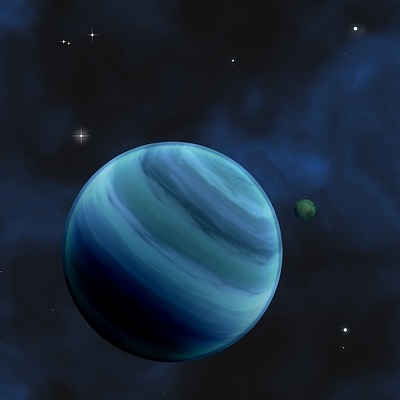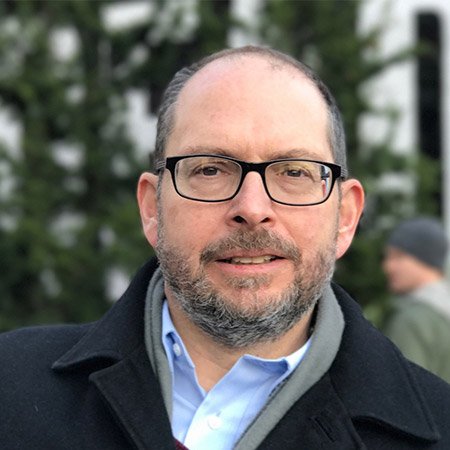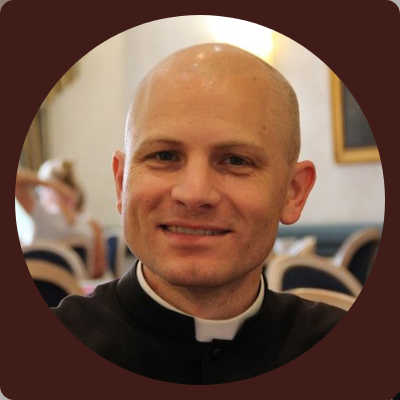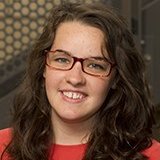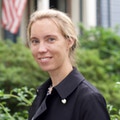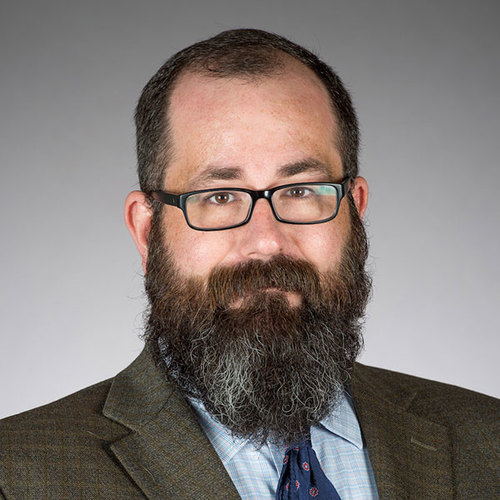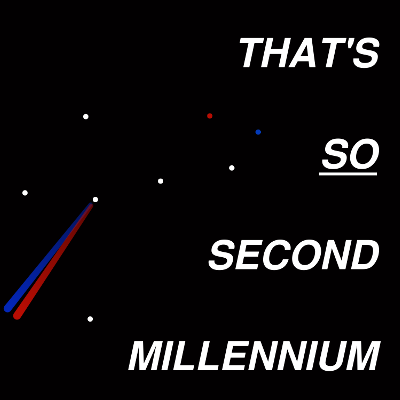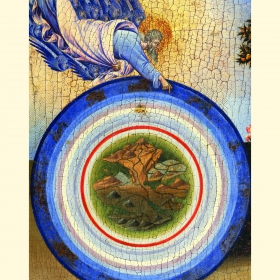Discover That's So Second Millennium
That's So Second Millennium

That's So Second Millennium
Author: Paul Giesting, William Schmitt
Subscribed: 4Played: 227Subscribe
Share
© Copyright 2020 Paul Giesting and William Schmitt
Description
Paul (the scientist) and Bill (the journalist) explore the boundaries between science and religion, interviewing scientists, engineers, and thinkers of all sorts.
164 Episodes
Reverse
Deacon Harold Burke-Sivers (deaconharold.com) is a Catholic deacon and public speaker. Bill and I had the privilege of interviewing him earlier this month.
Deacon Harold Burke-Sivers is one of the most incisive and authentic Catholic speakers and authors who have arisen to serve the New Evangelization, including an outreach to the younger generations who hunger to combine secular reality and meaningful Church values.
Paul and Bill know Deacon Harold through our connections to the University of Notre Dame. But the Deacon’s reputation has spread internationally; as a scholar and a presenter nicknamed “the Dynamic Deacon,” he offers large groups from many backgrounds fresh resources for spiritual renewal, including the refreshment of male spirituality. This topic is masterfully addressed in his book, Behold the Man.
Deacon Harold has appeared frequently on the EWTN Catholic radio and television networks. Recently, he took part in a discussion on racism and Catholic responses in an episode of the “Franciscan University Presents” program.
A number of other books authored by Deacon Burke-Sivers over the years can be found here.
We welcome Darcia Narvaez, Ph.D., to the microphone. She is a professor of psychology at the University of Notre Dame, specializing in developmental cognition, the human brain, and behavior.
She has authored or edited numerous books, including Indigenous Sustainable Wisdom: First Nation Know-how for Global Flourishing (2019); Basic needs, wellbeing and morality: Fulfilling human potential (2018); and Developing the virtues: Integrating perspectives (2016).
A cornerstone of her research, Neurobiology and the development of human morality: Evolution, culture and wisdom (2014), received the Expanded Reason Award from University Francisco de Vitoria and the Joseph Ratzinger/Benedict XVI Vatican Foundation. The award recognizes innovation in scientific research and academic programs based on Pope Emeritus Benedict’s proposal to broaden the horizons of reason. This expansion questions and incorporates reflections on the anthropology, epistemology, ethics, and meaning that exist within a specific science. The foundation selected her book from among more than 360 entries from 30 countries.
Prof. Narvaez discusses here the concepts she groups together as “Evolved Nest” perspectives on child development and human flourishing. They serve as a lens for understanding the current state of our society and culture—our “downward cycle” in the collective pursuit of wisdom, morality, and community interaction. You can explore the concepts and their relevance for children, adults, and human ecology at evolvednest.org. She writes about an array of topics connected to this in a widely popular Psychology Today blog called “Moral Landscapes.”
Based on her research and informed by her diverse experiences (spanning seven careers, as she puts it), she suggests several ideas for recapturing a sense of wholeness amid the woundedness in human nature. Several characteristics of modern society have arisen over the past few centuries to cause the wounds seen today in civic life, communities, families, and individuals, she says. Drawing upon lessons from cultures that existed a long time ago, her suggestions to restore wholeness include such often-forgotten basics as more frequent engagement with nature, thinking new thoughts, journaling, and free-spirited play. “People don’t know themselves,” she comments. “You can get a lot of work done if you take a break.”
Morgan Burkart is the audio engineer for this third season of “That’s So Second Millennium.” Our original theme music, “Igneous Grok,” is by Vin Marquardt. Paul Giesting, Ph.D., is a geologist, consultant, and public intellectual with a passion for philosophical and theological insights into the world that complement scientific knowledge. Bill Schmitt, MPA, is an independent journalist, consultant, musician, and multimedia content producer in the fields of higher education, engineering, religion, and public affairs.
Dr. Jonathan Lunine is the David C. Duncan Professor in the Physical Science and chair of the Department of Astronomy at Cornell University. He is also the vice president and a co-founder of the Society of Catholic Scientists.
In this “part 5” of our interview, Dr. Lunine notes that planetary science was not always a distinct field. It drew upon components of astronomy or the geological study of the moon, for example. Astrobiology, with a goal of studying microbial life forms that may be found on exoplanets, is now at the point of relative infancy where planetary science stood about 50 years ago.
Enceladus, one of the dozens of moons orbiting Saturn, is one site worth inspecting in the search for life. It could be based on carbon-bearing molecules different from those found in Earth life. The Cassini mission reported on plumes of water vapor and ice emanating from that moon. Dr. Lunine was part of a group proposing a mission called Enceladus Life Finder.
Saturn’s moon Titan has seas filled with liquid methane. Could there be a form of biochemistry that works in liquid methane? It’s worth looking for, Dr. Lunine said.
The Society of Catholic Scientists, with more than 1,000 members, is expanding its activities. The international group’s next annual meeting will consider the possibility of extraterrestrial life and the implications of such discoveries relevant to faith. The conference will be held in June 2020 at Providence College.
Image by Reimund Bertrams from Pixabay
In this week's episode, we discuss the possibility of extraterrestrial life in our own solar system. Dr. Lunine talked about extraterrestrial life. It’s very possible that at least microbial life exists on other planets, he said, but the chances of complex, multicellular life are much more difficult to estimate.
We simply don't know what the possibilities are for life beyond the chemistry that it uses here on Earth. A potential tragedy that we would want to avoid at almost any cost would be the introduction of terrestrial microbes into a viable environment elsewhere, where they could become invasive species, grow and potentially outcompete the native life, which we would never get the chance to study and understand. NASA and other space agencies have policies in place to address this risk... hopefully, they will work.
Dr. Jonathan Lunine is the David C. Duncan Professor in the Physical Science and chair of the Department of Astronomy at Cornell University. He is also the vice president and a co-founder of the Society of Catholic Scientists.
Christianity and Extraterrestrials?: A Catholic Perspective , by Marie George, is a book worth reading, Dr. Lunine said.
He thanked all those who spoke at the 2019 conference of the Society of Catholic Scientists, and he commented on the high quality of the event. The website provides links to several TSSM episodes interviewing conference speakers.
Watch videos of speakers here.
Image by Reimund Bertrams from Pixabay
Dr. Jonathan Lunine is the David C. Duncan Professor in the Physical Science and chair of the Department of Astronomy at Cornell University. He is also the vice president and a co-founder of the Society of Catholic Scientists.
In this “part 3” of our interview, Dr. Lunine talked about exoplanets. The discovery of planets outside our Solar System has revolutionized planetary science.
The Kepler space telescope mission, with its nine-year voyage which ended last year, made possible the detection of thousands of planets. It’s now understood, Lunine said, that planet formation is a common part of star formation.
Lunine noted that Cornell University, where he is on the faculty, has many new avenues of astrophysics and planetary science research. The Carl Sagan Institute hosts a multidisciplinary team studying exoplanets.
Half of this year's Nobel Prize in Physics went to Michel Mayor and Didier Queloz for their discovery of the first exoplanet around an ordinary star.
Image by ChadoNihi from Pixabay
Dr. Jonathan Lunine is the David C. Duncan Professor in the Physical Science and chair of the Department of Astronomy at Cornell University. He is also the vice president and a co-founder of the Society of Catholic Scientists.
In this “part 2” of our interview, Dr. Lunine cited the book Secularity and Science by Elaine Ecklund (mentioned and linked in episode 79) and co-authors. The perceived conflict between faith and science is largely a Western phenomenon, according to Ecklund’s research, and it’s especially visible in the United States. Elsewhere, cultural education more fully incorporates an education about religion, so these people are more comfortable with the integration of the two.
He said Catholic news services and The Christian Science Monitor are among the organizations where journalists are more likely interested in the combination of topics in science and religion.
Dr. Jonathan Lunine is the David C. Duncan Professor in the Physical Science and chair of the Department of Astronomy at Cornell University. He is also the vice president and a co-founder of the Society of Catholic Scientists.
Here is information about the Vatican Observatory. It was one of the starting points for Lunine’s exploration of the compatibility between science and the Catholic faith.
He met Stephen Barr in 2014, and this led to their discussions about establishing the Society of Catholic Scientists. Here is a talk given by Barr at the University of Chicago.
Here is a talk by Lunine about Georges Lemaitre, a Catholic priest recognized as an originator of the Big Bang theory. In our conversation, Lunine described a presentation on Lemaitre that he gave at Cornell as a kind of “coming-out party” for him as a Catholic convert with his own story to tell. He has addressed Catholic students with the advice to share one’s faith story but to be judicious, following the practice of St. Paul, who adapted his messages to his audiences. A recommendation for discussions of faith: “There’s a time and a place for everything.”
Lunine mentioned Elaine Ecklund, who has studied what scientists think about the American culture’s understanding that science and religion are incompatible. Harvard physicist Lisa Randall, who has said belief in God is incompatible with science, is an example of the resistance to faith that many scientists encounter in academia, Lunine said. Our culture gives much credibility to scientists, who owe it to their audiences to be clear about when they are speaking as individuals rather than scholarly experts. Lunine also mentioned the Thomistic Institute, which has a chapter on the Cornell campus founded by a graduate student.
Part of the difficulty in the dialogue between science and religion is a popular but erroneous view that the Bible was intended to be a book of science. Here is a discussion of St. Augustine’s examination of this claim. Another challenge, Lunine said, is that our children generally grow up without a substantive education in religion.
Father John Hollowell is a priest of the Archdiocese of Indianapolis. He is well-known for his blog, “On This Rock.” His pastoral duties include parish leadership and chaplain roles at DePauw University and the Putnamville Correctional Faciltiy.
Fr. Hollowell spoke with Paul Giesting about the number of priests throughout history who have also been active as scientists. Here is one list of priest-scientists provided by National Catholic Register.
Pope John Paul II created a commission to review the Galileo Affair, and this resulted in documents officially apologizing for the Catholic Church’s historic, and hyperbolized dispute against Galileo’s statements.
Here is a link to the book that was discussed: Steven Pinker’s The Blank Slate: The Modern Denial of Human Nature.
Fr. Hollowell and Paul discussed the long-running football rivalry between DePauw University and Wabash College.
See Fr. Hollowell online at Facebook and YouTube. And also see his interview with well-known digital Catholic voice Brandon Vogt.
Paul here. A short episode this week. We're taking a little time off to celebrate the milestone of releasing our last SCS 2019 conference speaker interview with Megan Levis last week.
The pace of interviews is likely to slow a bit, but we have several that we're looking forward to. Next week we have Fr John Hollowell, an engaging priest, campus minister, prison chaplain, blogger and social media personality here in the Archdiocese of Indianapolis. We will be talking to Jonathan Lunine again soon to further explore his fascinating perspective. Bill is in discussions with John Cavadini, theologian at Notre Dame, and hopefully we will get the chance to explore some issues related to education and culture from a Catholic perspective. Paul is also getting ready to record the first version of a talk on faith and science in his own life that he hopes to begin giving at colleges and perhaps parishes, which we will release here as well.
Discussions are still underway for Gold Masses here in central Indiana. It's possible that Indiana University, IUPUI in Indianapolis, Rose-Hulman Institute of Technology, and Purdue University might have Gold Masses, depending on whether more people get involved and help make the events happen.
Now some thoughts from Bill:
Friends, this episode is a short, simple, heartfelt note befitting an approach that has been at the heart of “That’s So Second Millennium” right from its start nearly a year and half ago. The approach springs from the vision that prompted Dr. Paul Giesting to start this podcast and which resonated strongly with Bill Schmitt—yours truly, Paul’s co-host and the “show notes” writer.
What is the vision? As Paul says at the beginning of each episode, “we look forward to the new synthesis in the new millennium between faith, philosophy and science.” We seek to celebrate continuous inquiry in all three fields by talking with great guests about how their own pursuits of knowledge and wisdom have brought deeper, broader insights from which we all can benefit. There’s good reason to pursue the benefit because this third millennium has brought us more challenging questions which must be addressed with a full toolkit for understanding.
Inspired by our passion to spread updated, holistic, well-grounded understanding of many aspects of human life, visible and invisible, this podcast aims to generate authentic conversations with you, our listeners. The authenticity includes candor about another aspect of life in this millennium (or any millennium): It’s tough out there on Planet Earth. One must give voice to the frustrations marking our past, present and future as earthen vessels who are called to carry forward graces inextricably submerged in mystery. Paul’s inviting us to share the frustration and mystery with him in order to deepen our conversations.
It’s our intention to continue expanding the conversations on our side of the podcast. If we don’t do that, there’s no chance to help achieve the synthesis that can bring greater happiness and healing in our very exciting world of cracked pots. Paul outlines some of our planned interviews and collaborations as an invitation for greater outreach on your side of the podcast. Let’s keep the amazing momentum of 77 episodes going and growing!
This is the second half of TSSM’s interview with Megan Levis. We talked at greater length about this graduate student’s research and its good fit with values-informed thought, with the Society of Catholic Scientists, and even literature. The Society held its third annual conference at the University of Notre Dame a few months ago.
In Megan’s presentation to the scientists at the SCS annual conference, she posed the question: How do you distinguish and exercise ethical responsibilities when something like brain organoids are “made in the image and likeness of man rather than the image and likeness of God.” Organoids are multicellular systems built from brain tissue. Are they just cell cultures or something so akin to the human being—particularly when they are brain organoids—that ethical duties arise out of respect for human dignity? This is a relatively new field where the scientific understanding and moral consideration still must develop in tandem, she explained. A New York Times article touched on some of the questions being raised.
Megan’s own main research project as part of her graduate studies at Notre Dame deals with microfluidics. They are devices, a kind of miniature bio-reactor, in which researchers can grow cells and small organs. Her goal is to make it easier and less expensive to make microfluidics that can be used in future research. Here are resources on microfluidics from the journal Nature.
Her collaborations in this area came about from her meeting with a leader in microfluidics technology, Dr. Fernando Ontiveros, while they were both attending a previous SCS conference. His team is exploring new applications for microfluidics, such as the growing of organoids.
At what point should moral concerns tied to the dignity of the human person “kick in” when dealing with the brain and brain organoids? Where do you as a person reside in the body? The existence of a capacity for rational thought is a conventional scientific benchmark for the existence of personhood, Megan said. There are many theories of the complex brain-mind-body connection with personhood. The human person is a complex creature, not reducible to the brain or body alone. Here’s an exploration of some insights from National Geographic.
There is a real role for literature in helping us to explore the many questions that combine operational questions of engineering and more abstract, integrated thinking about persons, Megan says. She recommends renowned author Walker Percy, who explored such subjects in Lost in the Cosmos: The Last Self-Help Book. He comments that being a human is inevitably an uncomfortable process involving tensions within our nature. Our culture tends to look to science for answers to the big questions of human nature, but literature and art are pathways to answers too; literature allows us to think without predispositions and suppositions, to discover truths about ourselves and the world that transcend scientifically measurable parts. As Megan put it, the ability to wonder about the world is a gift that is transmitted sometimes through engineering and sometimes through literature and art.
Megan has been able to work with Ontiveros while he has done research and prepared journal articles at Notre Dame. With the support of mentors and advisors, she has embraced opportunities at Notre Dame and elsewhere to spend time thinking about faith and science in relationship. She attended a conference with like-minded graduate students interested in these connections. She has appreciated the insights of SCS president Stephen Barr and microbiologist Fr. Nicanor Austriaco, OP, a speaker at this year’s SCS conference. Barr is the author of Modern Physics and Ancient Faith. Austriaco has recorded a podcast available through the Thomistic Institute titled The Science and Practice of Christian Prayer.
What does Megan recommend for graduate students and others who want to advance in their bioengineering studies while staying informed and mindful about the faith-related aspects? She highlights the power of community, building friendships and conversations over time with a diverse range of people on similar journeys, including philosophy and science. One can attend relevant lectures and conferences, such as those sponsored by Notre Dame’s De Nicola Center for Ethics and Culture. She recommends the resources of the Collegium Institute. Building and updating such mindfulness is a long-term process requiring persistence, she adds.
Megan Levis is a fifth-year graduate student in bioengineering at the University of Notre Dame. The topic of her talk at the annual conference of the Society of Catholic Scientists was “Created in the Image and Likeness of Man.” She described the University’s bioengineering program.
Growing what can be deemed the beginnings of a human brain, for purposes of research, invites important ethical considerations. Levis has found resources at and through Notre Dame for deeper study of the responsibilities entailed in such research. She has worked with the John J. Reilly Center on science, technology and values. She has also been part of the Leadership Advancing Socially Engaged Research (LASER) program within the Graduate School.
Levis participated in an NSFsupported workshop on engineering design principles of multicellular living systems. Such workshops reflect a growing nationwide interest in the ethical and societal ramifications of rapidly developing technology related to systems of living things. The interest is prompting collaboration among philosophers, scientists, ethicists and engineers.
It’s a false dichotomy to separate faith and engineering. Levis said her advisor [Jeremiah Zartman] has been supportive of integrating values-related concerns, and that integration has made her research better. Now that there is an increased focus in bioengineering on the transfer, or translation, of knowledge from the lab bench to hospitals and clinical practice, the assessment of ethical implications is even more important.
Organoids are systems built from human cells that begin to look like an organ. In this new field, it’s important to create room for philosophical understanding, but right now the field is dominated by engineers and scientists largely using terms that sound like clunky jargon. Philosophy tells us we need to define our terms better, Levis said. We need better ways to describe what’s going on in accessible ways that allow for ethical thinking. Engineers tend to look at every component in its specifics, but there is value in seeing how one thing is similar to something else so both may come under similar ethical principles.
Karin Öberg is Professor of Astronomy and Director of Undergraduate Studies in the Department of Astronomy at Harvard University. Planetary formation—or stars and stellar evolution—is a focus of her research. She is a member of the Board of Directors of the Society of Catholic Scientists. See her CV here.
Öberg spoke of her first academic route to astronomy being via chemistry rather than physics. She discovered the field of astrochemistry while an undergraduate at the California Institute of Technology. She earned her PhD in astrophysics at Leiden University in the Netherlands.
She joined the faculty at the University of Virginia in 2012. One year, later, she received an assistant professorship at the Harvard-Smithsonian Center for Astrophysics, which is located at Harvard.
Öberg was baptized as a Christian in her youth but then drew away from the faith. She said she never adopted an atheistic, materialistic perspective largely because of two key principles she holds to: moral realism and one’s personal agency as an individual making free decisions.
During her college years, Christianity remained a living question for her partly because of the friends with whom she associated. Books influenced her deeply: Lord of the Rings, The Screwtape Letters, The Abolition of Man, Mere Christianity, and Orthodoxy. This combination brought her back to Christianity, first in the Anglican Church.
After joining the faculty at Harvard, she completed a two-year RCIA program at St Paul’s Parish in Harvard Square to join the Catholic Church. One concern she felt in her new Catholic experiences, she said, was that the statements in the Mass did not always seem to line up with personal beliefs articulated by individuals.
Öberg said she has not personally experienced any bias against her Catholicism at Harvard, and indeed she has felt welcomed in the astronomy community and among other colleagues. She helps to mentor some Catholic and Christian students. Some Catholic colleagues have experienced prejudice, in the biology department, for example. She said one factor is that her research does not touch on any controversial subjects. But she wants to let students know they should not be anxious about living out their Catholic faith because of fear of prejudiced encounters. Overall, being open about one’s faith has a net positive effect on oneself and others, despite occasional crosses one might have to bear.
In this episode we have Jonathan Lunine on the podcast, this time talking to him about his own spiritual journey from Judaism to Catholic Christianity, and from the secular surface of life as a scientist to a deeper life where the beauty of science is one prominent part of a larger whole of human experience. We also get the chance to discuss some of his work in studying the planets during the era when they changed from objects seen through a telescope to worlds we can map and even sample and bring back to our laboratories.
Jonathan Lunine, a planetary scientist at Cornell University, is a member of the board of the Society of Catholic Scientists. He spoke of the influence of reading Carl Sagan’s The Cosmic Connection and receiving Sagan’s advice for pursuing a career in astronomy.
Dr. Lunine has been on the scientific teams leading several missions of space exploration, including Cassini and, now, the James Webb Space Telescope.
He described his early spiritual journey, seeing how science and religion could be intertwined. The journey took him from Jewish family roots to a Methodist church and then to Catholicism. He spoke of being impressed by the connection between the Catholic faith and its Jewish roots.
Astronomers have been excited to learn of the abundance of planets to be found in our galaxy. As Dr. Lunine pointed out, thanks to initiatives like the New Horizons spacecraft, we have turned our “cosmic backyard” into a place where we can study an enormous variety of geology “and even, potentially, biology.”
He expressed gratitude for astronomers and others who became role models embracing the compatibility between science and faith. A key figure, about whom he has made presentations, is the Belgian priest Georges LeMaitre, known as the father of the big bang theory.
This was one of our most enjoyable conversations, and we definitely hope to have Dr. Lunine back on the podcast again.
In this episode we roll out a new format for Season 2.
We recap Season 1 (April 2018 - March 2019) and the three focus areas of the podcast so far:
Discussion of the fundamentals of the question whether it's reasonable to believe in both science and the Catholic Christian faith, and some exploration of particular topics, like the role of geology in the interpretation of the book of Genesis.
Review and comments on the speakers at the Society of Catholic Scientists Conference 2018.
Interviews with scientists and scholars living out their Christian faith, many of whom are actively trying to spread the truth that the presumed conflict between science and religion is false, born from shoddy understandings, strawman arguments, and reactions against hypocrisy. Three of these people (Patricia Bellm, Chris Baglow, and Jay Martin) do this work at the McGrath Institute for Church Life at the University of Notre Dame.
We then go on to discuss our plans for coming episodes, turning to topics of religion, spirituality, and psychology (including topics like child development and addiction) where the intersection of faith and science allows us to build new solutions or give tremendous new life to old solutions to the problems of human life.
0:00 - The question of relativism vs. hyperrationalism
1:00 - God's love is not a "fact" but, say, hominid ancestry is
1:30 - Tapping into the belief in the rationality of science to bring back belief in reality in faith
2:30 - "Kicking in the back door of relativism"
4:00 - Linkages between theology, philosophy, and science: e.g. logical consistency
5:30 - Effects on the rest of schools that participate in the Science & Religion Initiative
6:30 - Encouragment to integrate, say, history, economics with faith as well
7:00 - Congregation for Sacred Doctrine 1977 "The Catholic School"
8:00 - Faith & literature, arts
9:30 - The true limits of dogma; need to understand how limited Catholic dogma really is, and how non-restrictive
13:00 - Teachers woefully overworked and underpaid, not given the ability to succeed
14:30 - Blessed to have excellent but also humble panelists & experts intending to listen to one another
19:00 - Story of the second & first editions of Baglow's textbook
Why pick either science or religion when you can have both? We open the discussion and touch on how fields as disparate as cosmology, neuroscience, and psychology interweave with faith in fascinating ways.
Dr. Paul Giesting and Bill Schmitt welcome listeners back for new episodes of our “legacy” podcast, “That’s So Second Millennium.” See below for biographies. Check out our archived episodes: That's So Second Millennium
Here’s a chronological list of popes. For context in this episode, start with Pope Leo XIII (#256) and look through the 20th century for Popes Pius X, XI, and XII. (Please forgive a couple of small historical and mathematical mistakes--at one point Paul says something amounting to 5+7 make 11 or 4+7 make 12.)
What’s in a name? Paul has developed a sports-inspired bracket for papal names and their likelihood, with 64 possibilities. We'll digitize it and post it in connection with the next episode.
Papal tiara logo borrowed from The Mad Monarchist.
Pope Leo XIV conforms with Paul’s bracket prediction of the “top seed”: With the passing of Pope Francis, Leo was the most likely name to be chosen.
Scholars have called the 1660-1836 period as “the long 18th century” in English literature. They point to a “long 19th century” between 1750 and 1914.
Here’s one take on why Cardinal Robert Prevost chose Leo as his papal name. Leo is now the fourth-most common papal name in history along with Clement. The only more popular names are John, Benedict, and Gregory.
Would you like to read the book—Their Name is Pius—that Paul read in his youth? Amazon says it doesn’t come cheap.
You can also read Eamon Duffy’s The Stripping of the Altars.
Pope Leo XIV has called for a new Rerum Novarum, according to the Aleteia news site.
Here’s the bio of St. Francis Xavier, missionary and one of the original seven Jesuits.
Yes, there was a Pope Lando, reigning in the years 913-914.
Pope Julius I, a canonized saint, reigned in 337-352.
Updated bio of Bill Schmitt: Bill Schmitt is a journalist, educator, and marketing communications specialist who has been an adjunct professor of English and media at several schools, most recently Holy Cross College in Notre Dame, IN. He served on the communications staff of the University of Notre Dame from 2003 to 2017, managing many projects and joining in a wide range of multimedia, interdisciplinary collaborations. Since then, his freelance work has included feature-writing, editing, podcasting, and blogging, with much of his work centered on the Catholic faith. Bill holds a BA from Fordham University and an MPA from the Princeton School of Public and International Affairs. Find his work at billschmitt.substack.com, OnWord.net, and billschmitt-onword on Linked-In.
Paul felt it was important to put Daniel's book title in the episode title, but Bill's suggested title is too good not to place somewhere:
TSSM: NEW BOOK EXPLORES MEANING IN MOTION
In this new episode of the “That’s So Second Millennium” podcast, your host Paul Giesting, assistant professor of mathematics and sciences at Wyoming Catholic College, interviews his faculty colleague, Dr. Daniel Shields, assistant professor of philosophy. Shields’s book, Nature and Nature’s God: A Philosophical and Scientific Defense of Aquinas’s Unmoved Mover Argument, has just been released by Catholic University of America Press and is available for purchase here.
This discussion is tailor-made for these two Catholic scholars who bring broad scientific and philosophical knowledge, plus fervor for conversations at the intersection of multiple disciplines, to their research and teaching. It is also tailor-made for the “TSSM” podcast, which seizes this golden opportunity for a curtain-call while remaining on official hiatus. The podcast generated about 150 episodes between 2018 and 2022, with co-host Bill Schmitt. They focused on the intersection, incorporating everyday life and the pursuit of virtuous wisdom—past, present, and future.
Shields makes reference to Dr. Robert C. Koons, professor of philosophy at the University of Texas at Austin. Koons wrote a review of Nature and Nature’s God, praising its integration of natural philosophy and metaphysics. The book combines scientific knowledge with insights into the writing of St. Thomas Aquinas.
Shields and Giesting go into depth on Aquinas’s proofs for the existence of God, especially his favored “first way”—arguing our cosmos filled with motion needs an “unmoved mover” at its origin (and beyond). The discussion elaborates on the idea that God keeps everything in motion.
The book, Shields explains, goes on to apply natural philosophy and metaphysics to such subjects as statistical mechanics, contemporary cosmology, and even biology.
Through it all, Shields and Giesting make mention of many historical figures, from Aristotle to Copernicus to Newton to Maimonidesto Helmholtz. Present-day references include Brother Guy Consolmagno, SJ, known as the Pope’s Astronomer, and quantum physics scholar Sean Carroll.
The co-hosts announce that the TSSM podcast, now posting our 146th episode, will begin a hiatus, but all programs and show notes will continue to be archived and accessible.
This episode allows Dr. Paul Giesting and Bill Schmitt to look back on their four-and-a-half years of interviews and discussions seeking a greater synthesis of knowledge: an exploration of science and religion, philosophy and spirituality, neuroscience and quantum physics, policies and principles, history and the future, to better understand ourselves and the values and virtues in our lives. Our curiosity and concerns are grounded in our experiences as cradle Catholics, a confidence that faith and reason can grow together as essentials for problem-solving wisdom, and a desire to honor the Church a central source of guidance and continuing growth.
Our first episode was posted on April 2, 2018, more than four-and-a-half years ago. We have welcomed a long list of well-known guests with expertise in a variety of fields, seizing the opportunity for rigorous but highly accessible, interdisciplinary and inspirational, conversations that transcend silos of specialization. We are grateful for the grand adventure of pursuing truth and reality, both visible and invisible, with the scholars and thought-leaders who shared their insights.
That’s So Second Millennium was the first podcast to provide structured news coverage and commentary on the conferences and lectures of the Society of Catholic Scientists, and we interviewed a number of SCS members. Both Paul and Bill have been members of the growing, international organization.
Paul, who holds a PhD in Geology from the University of Notre Dame, presented a lecture on uranium and nuclear power at the SCS 2022 conference in Chicago.
In this episode, we made references to Billy Joel’s “We Didn’t Start the Fire” and to “Sing God a Simple Song”—from Leonard Bernstein’s
We talked about Wyoming Catholic College, where Paul is on the faculty, and we talked Holy Cross College, where Bill taught as an adjunct professor for three semesters before moving from South Bend, IN, to Troy, NY, in 2022. Both solidly Catholic colleges, we agreed, excel in their efforts to integrate the different aspects of our humanity and the various forms of knowledge within the hearts and minds of students.
Paul and Bill are inveterate Catholic communicators and educators. Learn more about Paul’s background in teaching, consulting, and public service. Learn more about Bill’s life as writer-editor, broadcaster-blogger, and author.
Here are some of the people we have been privileged to interview: SCS president Stephen Barr; planetary scientist Jonathan Lunine; astrophysicist and astronomer Brother Guy Consolmagno, SJ; theologian Paul Seongh Chung; Magis Center president and EWTN series host Father Robert Spitzer, SJ; astrochemist Karin Oberg; neurobiologist Maureen Condic; speaker-evangelist Deacon Harold Burke-Sivers; pro-life experts Richard Doerflinger and Christopher Bell; geologist Anne Hofmeister; cybersecurity expert Michael Cloud; psychologist Darcia Narvaez; business professor-author Anjan Thakor; and soul and spiritual musician Micki Miller. Learn more about them in the show notes accompanying their TSSM episodes. Thanks also to our friend, composer and performer Vin Marquardt, for writing our podcast’s closing theme for a long time, “Igneous Grok.”



